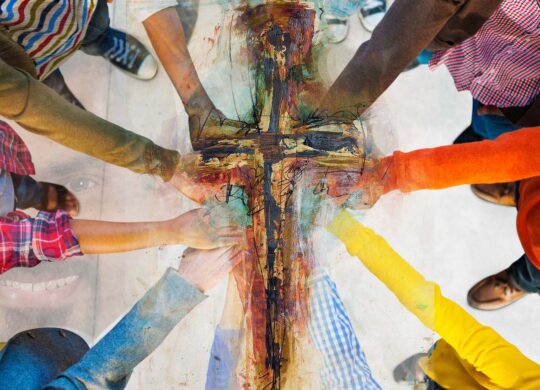Connection!

The COVID-19 pandemic was (and still is) a human tragedy on a global scale. But ecologists utilized it as an unparalleled opportunity to study the natural world and what happens there when humans abruptly step back from it.
“Anthropause,” they call it, the slowdown of human activity affecting the environment. 4–5 billion people, or 57 percent of the planet, were under some sort of movement restriction. Indeed, even driving decreased by more than 40 percent, while air traffic declined by 75 percent. Air and water quality improved in some places. Human-disturbed habitats began to recover.
And thus, some species clearly were helped by humanity’s absence. Mountain lions living in the Santa Cruz Mountains of California became more likely to select habitats near the urban edge, since humans had seemingly retreated and noise levels abated. And, in San Francisco, white-crowned sparrows began singing more quietly, and also at lower frequencies, a shift associated with better performance and an improved ability to defend territory and woo mates.
But that’s not the whole story, it seems. Other species struggled without human protection.
A New York Times article noted how, usually, breeding seabirds plus human seabird-watchers flock to Stora Karlsö, an island off the coast of Sweden. But during the pandemic, the latter were reduced by 90 percent. Now, with humans out of the picture, researchers found that white-tailed eagles moved in, in higher numbers than normal.
That’s good. But here’s the bad: The numerous eagles flushed smaller birds from their ledges, perches, and nests. Many eggs were lost. And it all began with the disappearance of humans!
Said Amanda Bates, an ocean conservation scientist at the University of Victoria, Canada, part of the team that coined “anthropause”:
Human beings are playing this dual role. We are acting as threats to wildlife but also being custodians for our environment.”
Nature is complex! And connected!
You’d have thought that wildlife-vehicle collisions would have decreased during the pandemic. Well, they did. But soon the numbers crept back up.
Explained Joel Abraham, a graduate student at Princeton University, studying ecology:
Per mile driven, there were more accidents happening during the pandemic, which we interpreted as changes in animal space use. Animals started using roads. And it was difficult for them to stop, even when traffic started to rebound.”
On a related, but different note, spikes in wildlife poaching and persecution, as well as illegal logging and mining, were reported in multiple countries. Perhaps it was the prevailing economic insecurity that drove some of this criminal activity, but it was also made possible by lapses in human protection, including reduced staffing in parks and preserves and even an absence of tourists, whose presence might typically discourage such undertakings.
All that to say, while nature is complex, everything in nature is inextricably connected!
And so are we humans. Or at least, we were meant to be. Particularly Christians, believers in the Lord Jesus Christ.
Therefore I, the prisoner of the Lord,
exhort you to walk worthy of the calling with which you were called,
with all humility and gentleness, with patience, bearing the other in love,
being diligent to keep the unity of the Spirit in the bond of peace;
one body and one Spirit,
just as also you were called in one hope of your calling;
one Lord, one faith, one baptism, one God and Father of all
who [is] over all and through all and in all.
Ephesians 4:1–6
United. One. In all things. Connected!
SOURCE:
The New York Times











 Abe Kuruvilla is the Carl E. Bates Professor of Christian Preaching at The Southern Baptist Theological Seminary (Louisville, KY), and a dermatologist in private practice. His passion is to explore, explain, and exemplify preaching.
Abe Kuruvilla is the Carl E. Bates Professor of Christian Preaching at The Southern Baptist Theological Seminary (Louisville, KY), and a dermatologist in private practice. His passion is to explore, explain, and exemplify preaching.